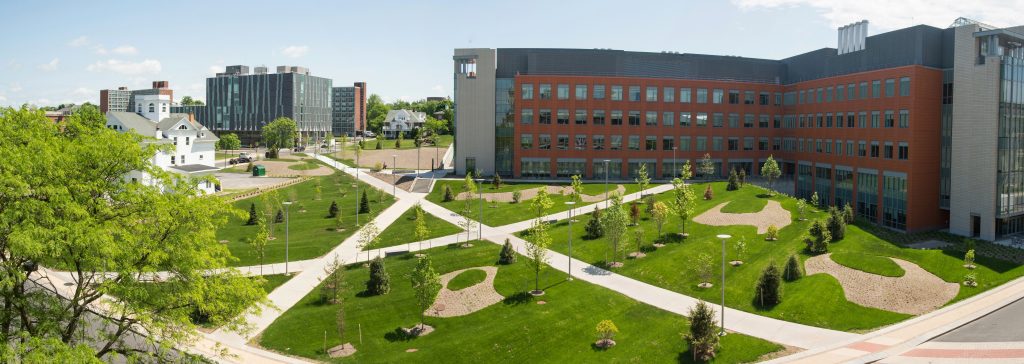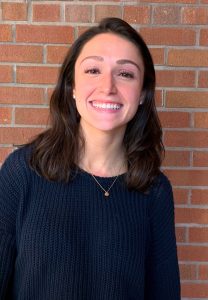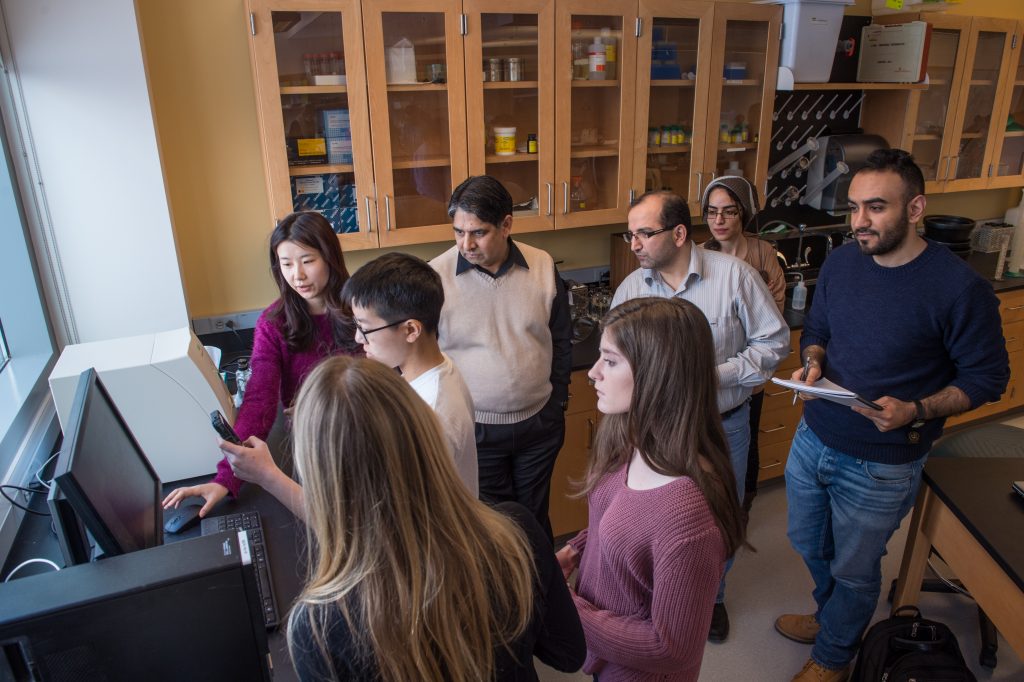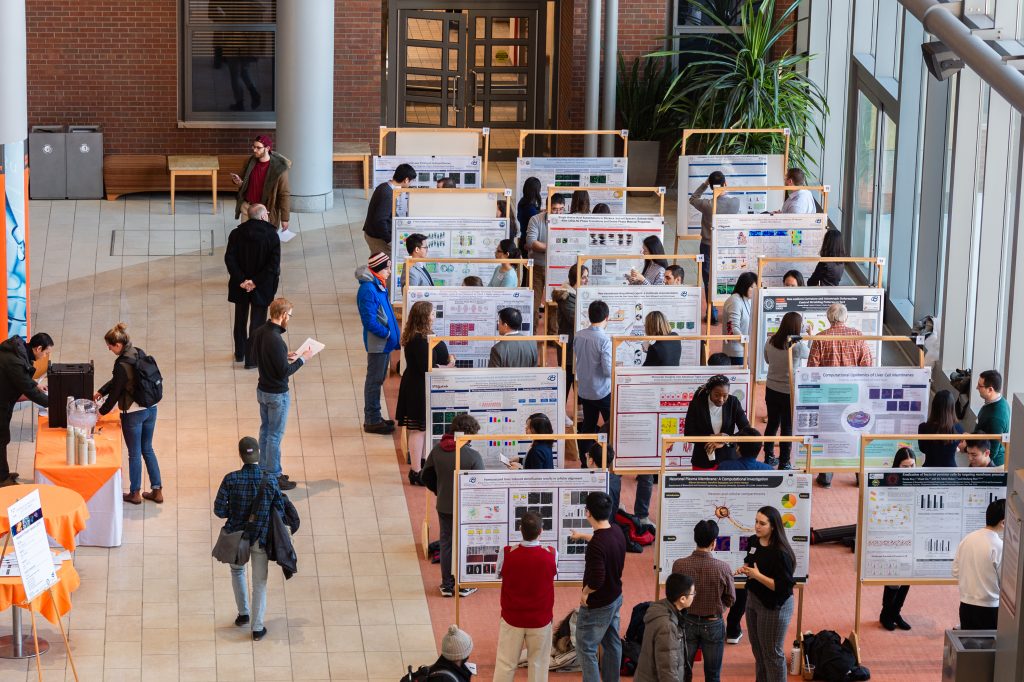
Syracuse University’s Biotechnology major, housed within the College of Arts and Sciences, boasts an interdisciplinary curriculum and connects students to a vast array of up-and-coming career paths. With core courses similar to a traditional Biology major, the B.S. in Biotechnology or the 5-year B.S./M.S. offer students the chance to choose from diverse electives, including specialized courses that focus on topics ranging from pharmaceuticals and the microbiome, to the creation of a business plan that pitches a new biotech product.
With an undergraduate degree in Biotechnology, students pursue careers in medicine, research, business, and science public policy. Others still go on to pursue Syracuse’s M.S. in Biotechnology or other advanced study.
Learn more about the Biotechnology major from senior Dana Immerso ’20, below!

Meet Dana Immerso ‘20
Major: Biotechnology
Minors: Public Health, Psychology
How did you choose Biotechnology?
Growing up I was always interested in a variety of different fields. I never wanted to just stick to biology or chemistry, or business, I wanted to be able to understand all of them. I applied directly to the Biotechnology program at Syracuse. It was actually what initially helped me discover the University. I loved that Syracuse had a great combination of a well-established undergraduate Biotech program and a really promising Master’s program.
Studying Biotechnology allows me to be what I call “decisively indecisive.” I can take courses that range from traditional life sciences courses in biology and chemistry, as well as business, entrepreneurship, engineering, law, public policy, and cutting-edge electives. Biotechnology allows me to explore the paths that interest me most. Personally, I’ve loved being able to adapt my passion for life sciences and business with my deep interest in public policy through the addition of my minors in Public Health and Psychology.
What are your favorite Biotechnology classes?

My favorite classes have been the ones that are directly related to the field of Biotechnology. Applied and Molecular Biotechnology with Dr. Raina was a great way to be introduced to the vast world of biotechnology and I was really able to diversify my knowledge and utilize my other studies in classes such as Professor Phillips’ Advances in Biotechnology course and our capstone program with Professor Coleman.
I think the main strength of our program is the diversity of it. As a biotech student you’re exposed to so many amazing and crucial fields, however, you have the ability to focus and hone in on what you’re most interested and passionate about. I feel very well prepared for my post-grad goals because I’ve learned to adapt to an ever changing field of study. As the world changes and requires different levels of learning and technology I feel confident that I’ll be able to move along with it.
How does The Biotechnology Society at Syracuse assist students interested in biotechnology?
The Biotechnology Society at Syracuse was founded by a really passionate group of students who wanted a space to find and interact with not just students who are declared biotechnology majors, but even those who simply have a passion or desire to learn more about the topic.
Because of the diversity of the courses we take, biotechnology does not necessarily fit in with any one particular field or other established organizations on campus such as pre-medical, or pre-health organizations. We wanted a group to call our own to spread the word about the amazing field that is biotechnology. Not only have we created a great learning and growth space on campus but we’ve also been lucky enough to have immersion trips off campus such as at the NEXT Conference of Innovation held at the On-Center in downtown Syracuse and a trip to Bristol Myers Squibb sponsored by the Career Center.
What else are you involved in at Syracuse?
I have a research position in the Developmental Biopsychology lab under Professor Catherine Cornwell of the Psychology department. I’ve held several internships, including as an administrative intern at Stamford Health Medical Group in my home state of Connecticut, and as a lobbying analyst for Hill Partners LLC during my time in Syracuse. I’m also a member of Kappa Alpha Theta, a sorority on campus.

What is your dream job?
I really feel like the opportunities available to me are endless. While some may think that biotech students are expected to dive straight into research or graduate school, I feel more passionate about the business side of science. I am looking primarily at start-up companies focused on pharmaceuticals and life science consulting positions and even some training programs that will set me up for potential future degrees.
What advice would you give to students interested in Biotechnology or who are considering Syracuse?
My best advice is to learn more about biotechnology and how it can be adapted to your goals, interests, and passions. It can be daunting at first because of how vast the field is, however, studying biotechnology allows you to become a well-rounded individual that has knowledge and expertise in a variety of subjects. As cheesy as it may sound, Syracuse’s program allowed me to follow my heart and manipulate my curriculum to suit me best. The professors are all incredibly passionate and if you have a goal they will help you in whatever way they can!
